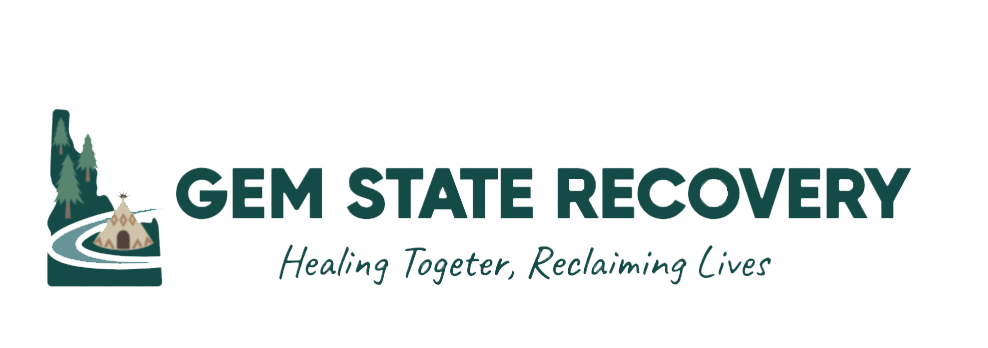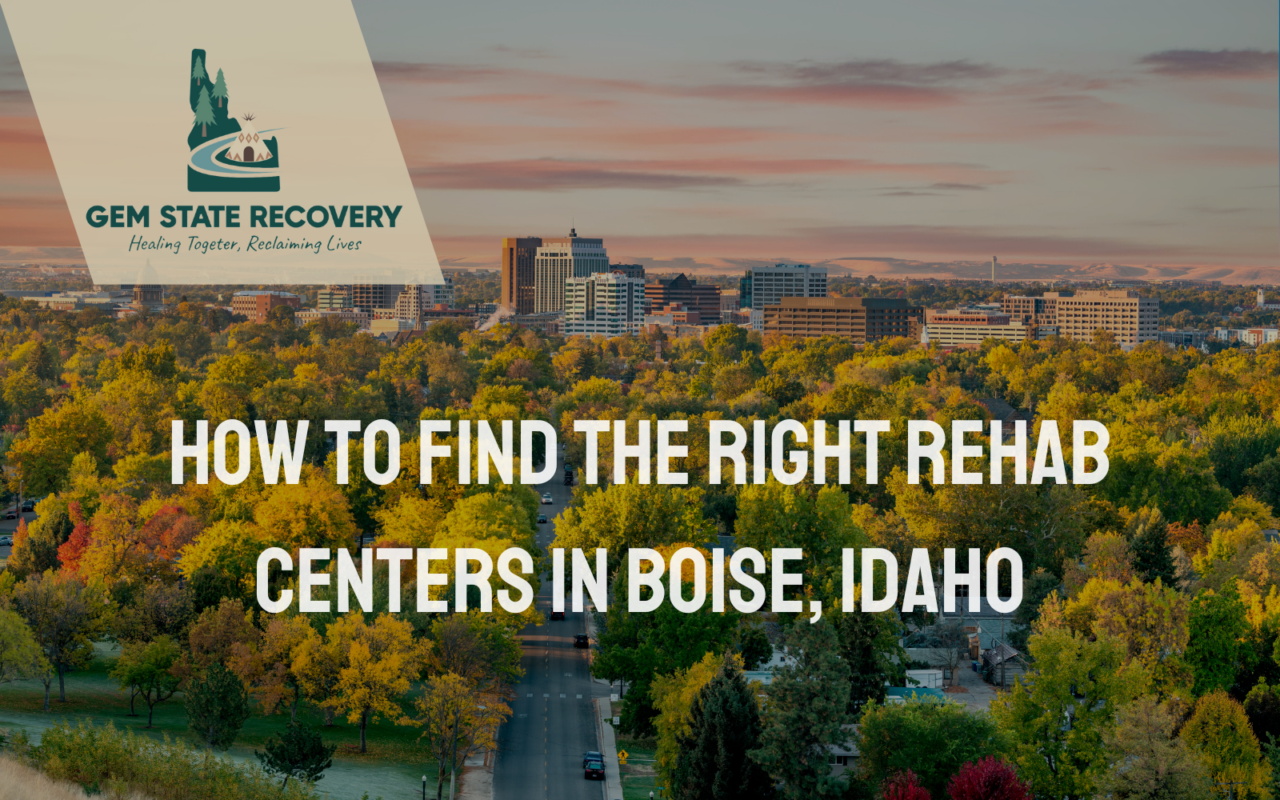Finding the right rehab center can be a transformative step in your journey to recovery. Your choice of a rehab centers in Boise Idaho, will significantly influence your path to sobriety. With so many options available, the decision can feel overwhelming. This comprehensive guide will help you understand what to look for and how to make the best decision for your needs.
Understanding Your Needs
The first step in finding the right rehab centers in Boise Idaho is understanding your specific needs. Different types of substance abuse and addiction require tailored approaches for effective treatment. Whether you’re dealing with alcohol dependency, opioid addiction, or other substance abuse issues, knowing the specifics of your condition is crucial.
Self-Assessment
Self-assessment can be a valuable tool. Reflect on the frequency and quantity of substance use, any previous attempts at sobriety, and mental health concerns. Consider the following questions:
- How often do you use the substance?
- How much of the substance do you use each time?
- Have you tried to quit before, and if so, what were the results?
- Are there any underlying mental health issues contributing to your substance use?
Professional Assessment
While self-assessment is helpful, seeking professional help for a comprehensive assessment is often the best course of action. Professionals can provide a thorough evaluation, which is vital for selecting the most suitable treatment plan. This evaluation typically includes:
- Medical history and physical examination
- Psychological assessment
- Substance use history
- Family history of addiction or mental health issues
- Social and environmental factors
Research Different Rehab Centers in Boise Idaho
Boise, Idaho, offers a variety of rehab centers, each with unique programs and treatment approaches, tailored to meet diverse needs and preferences. Understanding the different types of programs and their approaches will help you make an informed decision.
Holistic Treatments
Some centers focus on holistic treatments, emphasizing the mind-body connection through techniques such as yoga, meditation, and nutritional counseling. These approaches aim to foster a balanced and healthy lifestyle. Holistic therapies may include:
- Yoga and Meditation: These practices can help reduce stress, improve mental clarity, and promote physical well-being.
- Nutritional Counseling: Proper nutrition is essential for recovery, helping to repair the body and mind.
- Acupuncture and Massage Therapy: These therapies can help alleviate withdrawal symptoms and promote relaxation.
Traditional Methods
Other centers may offer more traditional methods such as cognitive-behavioral therapy (CBT) and medication-assisted treatment (MAT), which are evidence-based practices proven to help in addiction recovery. Traditional therapies may include:
- Cognitive-Behavioral Therapy (CBT): This therapy helps individuals identify and change negative thought patterns and behaviors.
- Dialectical Behavior Therapy (DBT): A type of CBT that focuses on emotional regulation and mindfulness.
- Medication-Assisted Treatment (MAT): The use of medications, in combination with counseling and behavioral therapies, to treat substance use disorders.
Types of Programs
Understanding the differences between inpatient and outpatient programs will help you decide which program aligns best with your lifestyle and recovery needs.
Inpatient Programs
Inpatient programs provide a structured environment, which can be beneficial for individuals needing intensive care and constant support. These programs often include a comprehensive schedule of therapy sessions, group activities, and medical supervision, creating a controlled setting that minimizes the distractions and temptations of daily life. Benefits of inpatient programs include:
- 24/7 medical and emotional support
- Structured daily schedules
- Removal from triggers and negative environments
- Intensive therapy and support
Outpatient Programs
Outpatient programs, on the other hand, offer more flexibility, allowing individuals to maintain daily responsibilities such as work, school, or family commitments while receiving treatment. These programs can vary in intensity, from partial hospitalization to intensive outpatient programs, offering multiple levels of care based on individual needs. Benefits of outpatient programs include:
- Flexibility to live at home and maintain daily responsibilities
- Lower cost compared to inpatient programs
- Access to support networks and community resources
- Gradual transition back to everyday life
Unique Features and Amenities
Unique features and amenities can also play a significant role in your decision. Some rehab centers in Boise Idaho offer luxurious accommodations with private rooms, gourmet meals, and serene environments that can make the recovery process more comfortable and less stressful. Consider the following amenities:
- Private or Shared Rooms: Depending on your preference for privacy or community living.
- Gourmet Meals: Nutritionally balanced meals prepared by professional chefs.
- Fitness Facilities: Gyms, swimming pools, and other recreational facilities.
- Recreational Activities: Opportunities for hiking, swimming, art therapy, or equine therapy.
- Alternative Therapies: Art therapy, music therapy, and equine therapy provide creative outlets and unique ways to address emotional and psychological issues.
Choosing the right rehab centers in Boise Idaho involves careful consideration of all these factors. By understanding the various options and what they offer, you can make an informed decision that best supports your journey to recovery. Remember, the goal is to find a program that not only addresses your addiction but also fits your lifestyle and personal preferences, enhancing your chances for a successful and lasting recovery.
Consider the Location and Environment
The location and environment of a rehab center are crucial factors to consider when choosing the right facility for recovery. A peaceful and tranquil setting can promote healing and reduce stress, which is essential for the recovery process. Boise, with its natural beauty, serene landscapes, and abundance of outdoor recreational opportunities, offers the perfect backdrop for a rehab experience. The city’s picturesque parks, rivers, and mountains provide a calming atmosphere that can significantly enhance the journey towards sobriety.
Tranquility vs. Practicality
However, it’s important to balance tranquility with practicality. Being too close to home might expose you to familiar triggers and temptations that could hinder progress, while being too far away might make it challenging for family and friends to visit and provide crucial support. When evaluating potential rehab locations, consider places that offer a supportive environment without compromising on accessibility. Look for centers that facilitate family involvement in the recovery process through therapy sessions and visitations while still providing enough distance to foster a fresh start.
Amenities and Programs in Scenic Locations
Additionally, consider the amenities and programs offered by the rehab centers in Boise idaho. Some facilities in scenic locations like Boise provide holistic therapies such as meditation, yoga, and nature walks, which can further enhance the healing process. By carefully weighing these factors, you can find a rehab center that not only meets your practical needs but also supports your emotional and psychological well-being on the path to recovery.
Check Accreditation and Licensing
Choosing an accredited and licensed rehab centers in Boise idaho ensures you receive quality care that adheres to industry standards. Accreditation bodies like The Joint Commission or the Commission on Accreditation of Rehabilitation Facilities (CARF) evaluate rehab centers based on their services, programs, and staff qualifications.
Importance of Accreditation
Accreditation indicates that the rehab center has met rigorous standards and is committed to providing high-quality care. It’s a mark of trustworthiness and reliability, giving you peace of mind that you’re making a sound investment in your health. Key aspects of accreditation include:
- Quality of Care: Assurance that the center provides high standards of treatment.
- Qualified Staff: Verification that the staff are properly trained and credentialed.
- Safety Standards: Compliance with safety protocols and procedures.
- Continuous Improvement: Commitment to ongoing improvement and excellence in care.
Read Reviews and Ask for Recommendations
Reading reviews from previous patients or their loved ones can provide valuable insights into a rehab center’s effectiveness and atmosphere. Positive reviews and testimonials can highlight a center’s strengths, while negative reviews can reveal potential red flags.
Online Reviews and Testimonials
Online reviews can be found on various platforms, including the rehab center’s website, Google, and specialized addiction treatment review sites. Look for patterns in the feedback to get a sense of the overall quality of care. Key aspects to consider include:
- Success Stories: Positive outcomes and successful recoveries.
- Staff Interaction: The professionalism and compassion of the staff.
- Facility Conditions: Cleanliness and comfort of the facility.
- Program Effectiveness: How well the programs and therapies work.
Professional Recommendations
In addition to online reviews, seeking recommendations from trusted sources such as doctors, therapists, or support groups can be incredibly helpful. These professionals have firsthand experience with various rehab centers in Boise idaho and can guide you towards reputable options. Consider asking for:
- Personal Experiences: Firsthand accounts from individuals who have completed treatment.
- Professional Opinions: Insights from healthcare providers who understand your specific needs.
- Support Group Feedback: Recommendations from members of addiction support groups.
Consider Cost and Insurance Coverage
Rehab programs can be expensive, but financial constraints shouldn’t prevent you from getting the help you need. It’s important to understand the typical costs of rehab programs in Boise, Idaho, and explore different ways to cover these expenses.
Understanding Costs
Rehab costs can vary widely depending on the type of program, length of stay, and level of care required. Typical costs include:
- Inpatient Programs: Usually more expensive due to the 24/7 care and accommodation.
- Outpatient Programs: Generally less expensive but may require more extended treatment periods.
- Luxury Rehab Centers: Higher costs due to additional amenities and upscale facilities.
- Specialized Therapies: Additional costs for alternative or specialized therapies.
Insurance Coverage
Insurance coverage can significantly reduce out-of-pocket costs. Many rehab centers in Boise idaho accept insurance plans, but it’s essential to verify if they cover the specific services you need. Key steps include:
- Verify Coverage: Contact your insurance provider to confirm coverage for addiction treatment.
- Understand Benefits: Know what services and therapies are covered under your plan.
- Check Network: Ensure the rehab center is in-network to maximize coverage.
- Financial Assistance: Some centers offer payment plans or financial assistance options to make treatment more affordable.
Schedule a Tour and Ask Questions
Before making a final decision, scheduling a tour of the rehab center can offer a firsthand look at the facilities and meet the staff. During the tour, ask questions about staff qualifications, success rates, and aftercare options.
Key Questions to Ask
It’s also a good idea to inquire about the daily schedule, available therapies, and the overall philosophy of the center. A personal visit can provide a clearer picture of the environment and help you determine if it’s the right fit for you. Consider asking the following questions:
- Staff Qualifications: What are the credentials and experience of the staff?
- Treatment Approach: What therapies and programs are offered?
- Success Rates: What are the center’s success rates and how are they measured?
- Aftercare Programs: What aftercare support is available?
- Facility Conditions: How clean and well-maintained are the facilities?
- Patient Reviews: Can you speak with former patients or their families?

Evaluate Treatment Approach and Philosophy
Different rehab centers in Boise, Idaho, offer various treatment approaches and philosophies. Some centers may focus on a 12-step program, while others might emphasize holistic or evidence-based treatments.
Aligning with Personal Beliefs
It’s important to find a treatment approach that aligns with your beliefs and values. This alignment can enhance your commitment to the program and improve your chances of long-term success. Consider the following treatment approaches:
- 12-Step Programs: Based on the principles of Alcoholics Anonymous, these programs emphasize peer support and a structured path to recovery.
- Holistic Approaches: Focus on treating the whole person, including physical, emotional, and spiritual health.
- Evidence-Based Treatments: Utilize scientifically proven methods such as CBT and DBT.
- Faith-Based Programs: Integrate religious or spiritual beliefs into the recovery process.
Consider Aftercare Support
Aftercare support is a critical component of long-term sobriety. Effective aftercare programs provide ongoing support and resources to help individuals maintain their recovery after completing treatment. These programs often include a variety of services tailored to meet the unique needs of each individual, ensuring that they have the tools and guidance necessary to navigate the challenges of post-treatment life.
Types of Aftercare Support
Rehab centers in Boise Idaho, may offer various types of aftercare support, such as support groups, alumni programs, and continued counseling. These resources can provide a network of support and accountability, which is essential for preventing relapse and achieving lasting sobriety. Consider the following aftercare options:
- Support Groups: Regular meetings with peers who share similar experiences and challenges.
- Alumni Programs: Activities and events for former patients to stay connected and engaged.
- Continued Counseling: Ongoing therapy sessions to address emerging issues and reinforce coping strategies.
- Sober Living Homes: Transitional living environments that provide structure and support.
Finding Care for You or Your Loved Ones
Finding the right rehab centers in Boise Idaho, requires careful consideration and thorough research. By understanding your needs, exploring different options, and evaluating key factors such as location, accreditation, cost, and treatment approach, you can make an informed decision that sets you on the path to successful recovery.
Remember, taking the time to choose the right rehab center is crucial for your long-term sobriety and overall well-being. Seek professional help, consider your personal needs, and don’t hesitate to ask questions. With the right support and resources, you can achieve lasting recovery and a healthier, happier future. For more information visit our website https://gemstaterecovery.com/ or call us at (208) 314-3107





